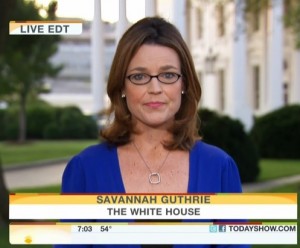The New York Times Sunday Magazine ran a Mother’s Day interview with, who else, the head of Planned Parenthood. Planned Parenthood does a few things that people either love or hate, but none so much as aborting more than 300,000 unborn children each year.
The media are firmly on one side of this issue and have done quite a bit to help out Planned Parenthood, a truth laid painfully bare during the Komen Foundation for the Cure situation last year, which I chronicled extensively. That was when the private foundation devoted to fighting breast cancer decided to pull out of funding the country’s largest abortion provider. The media didn’t view this as a story with two sides but went to the mat to force Komen to cave in. It worked. Within days, they were bullied into relenting and agreed to give money to Planned Parenthood.
Some media outlets perpetuated a falsehood about Planned Parenthood — that the organization offers mammograms. It doesn’t. Months (and years) after those mistruths were shared (by Planned Parenthood, President Obama and the media), some media outlets corrected the information. See here, here and here.
That cozy relationship is also shown in this Times magazine piece. These interviews are generally fluffier for friends of the paper than foes, but fluffy in general.
You can see where that might be a problem when dealing with the head of an organization that, again, aborts more than 300,000 unborn children each year. If, you know, you think that’s troubling.
But even so, the interviewer does not in any way shy away from political questions. That could be a good thing.
Do we see tough questions about whether the Cleveland kidnapper should be charged with murdering his unborn children by forcibly aborting them? No.
Do we see any questions, tough or non, about the biggest abortion-related story of the year — the murder trial of abortion doctor Kermit Gosnell? Dear reader, I have to tell you. The answer is no!
Just by way of example, Catholic news director Anna Mitchell is having trouble getting anyone at Planned Parenthood to accept her interview request. She offers these sample questions for journalists who are able to get interviews with Planned Parenthood:
First, I read a report that Gosnell’s lawyer, during cross-examination, downplayed the procedures in his clinic by saying they were common in the abortion industry at-large. Is this true? If Gosnell’s procedures are not standard to the industry, what is standard procedure? The latest string of videos from Lila Rose’s Live Action confirms at least that Gosnell’s is not the only clinic that would be willing to let a baby die after a botched abortion (http://www.liveaction.org/inhuman/videos/) – are there more? Should these doctors be punished if the evidence proved they did not provide life saving care for the child?
Second, the conditions in Gosnell’s clinic were revolting, to say the least. He could quite possibly become a poster child for legislation that would require abortion clinics to have the same standards as hospitals. I know that most – perhaps all – abortion rights groups have opposed these bills in the past, saying it would force too many clinics to shut down. In light of the Gosnell case, will that position change? Wouldn’t hospital-like requirements ensure that every clinic provides a clean, safe environment for women? Wouldn’t it be better for a woman to travel farther away if it meant lessening her risk of STDs, infections or even death? If you remain opposed to these kinds of standards, why?
Instead, you won’t believe the hot-off-the-presses questions that New York Times interviewer Andrew Goldman and his editors signed off on instead of anything on, say, Gosnell:











